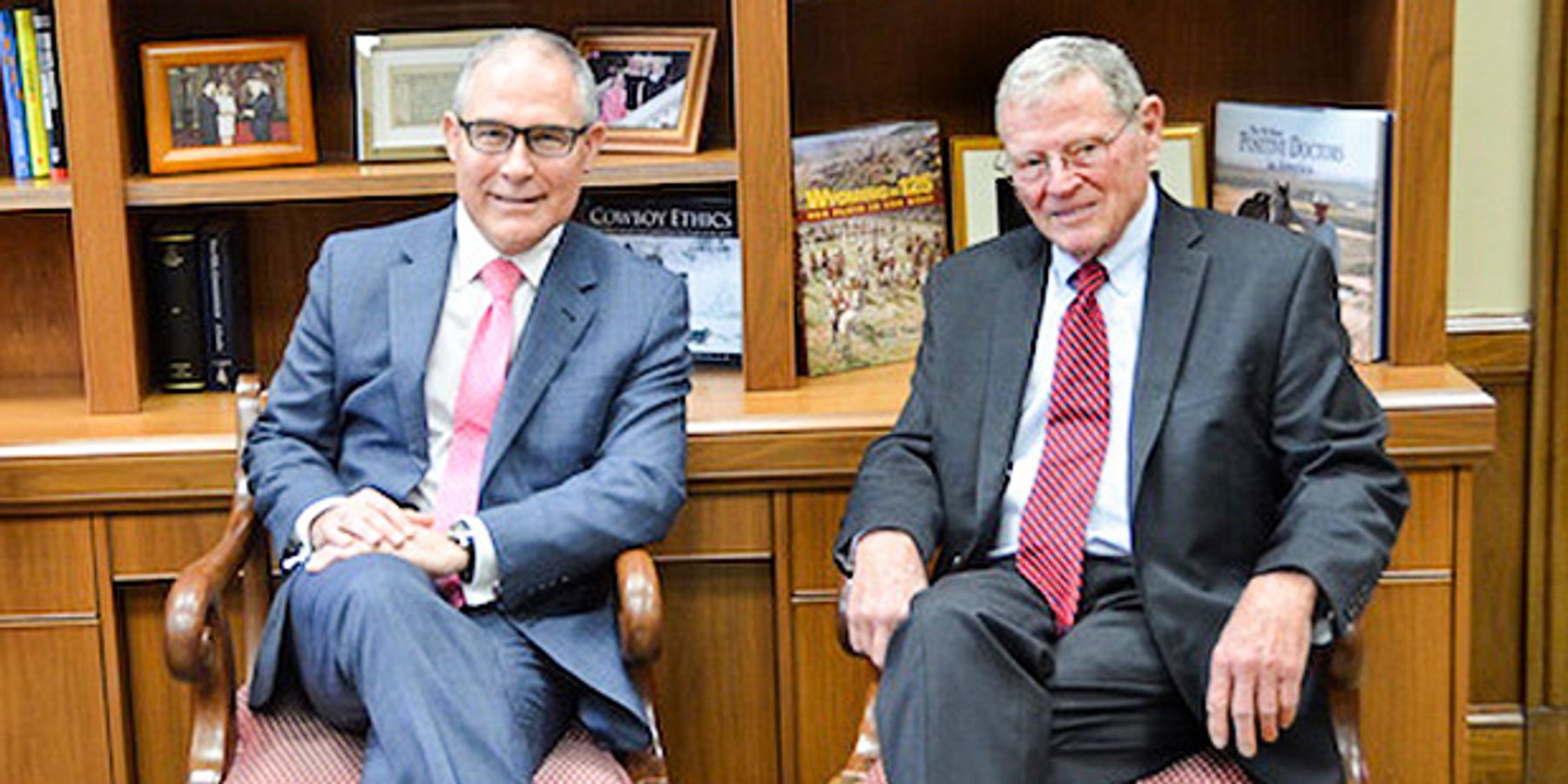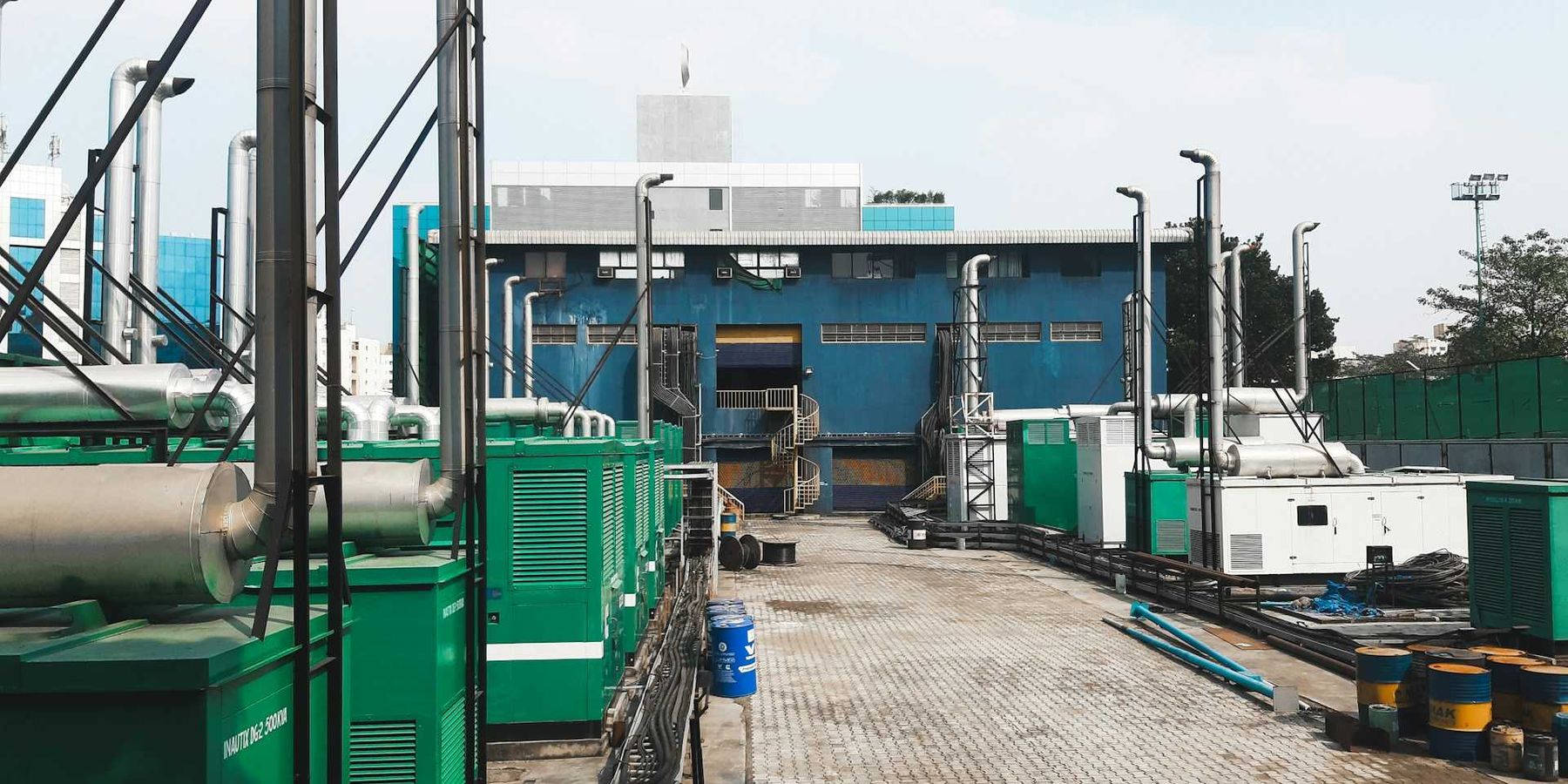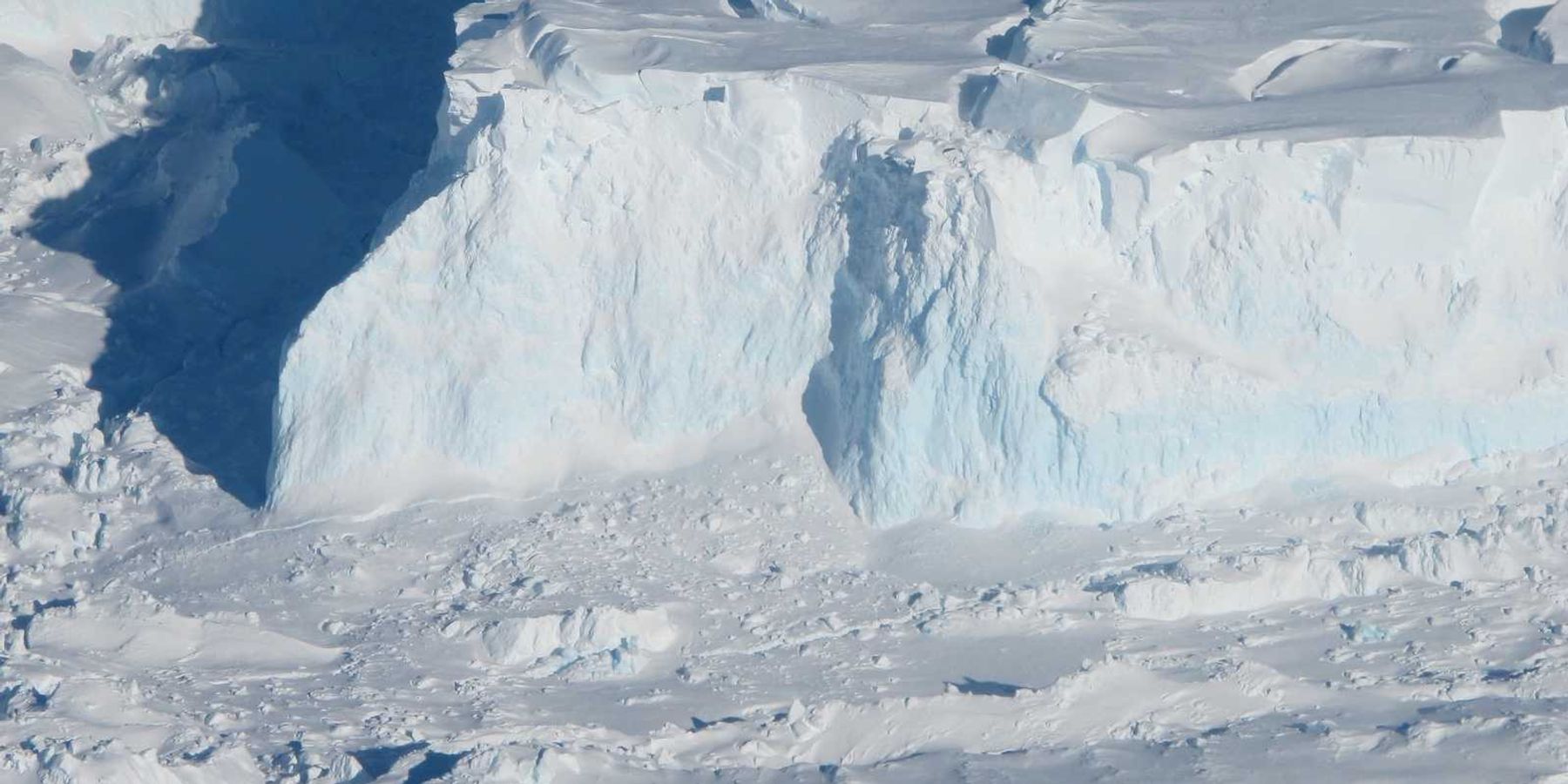
The Boys from Tulsa/Weekend Reader for Sunday, April 29
A trio of regulation-hatin', climate-denyin' desperadoes from Tulsa are taking Washington by storm. What's in the water down there?
It is said that things come in threes. In the case of Senator James Inhofe, EPA Administrator Scott Pruitt, and newly-confirmed NASA Administrator Jim Bridenstine, it may be true of people, too.
All three cut their political teeth in the city of Tulsa. Now, with Inhofe four decades into a national anti-environmental career for the ages; Pruitt trying to outdo him in little more than a year, and Bridenstine quitting Congress to oversee NASA's space and earth science, a less-than-grateful environmental community says, "Thanks, Tulsa."
"Tulsa used to be a vibrant, progressive city," laments lifelong Tulsan Barbara Vanhanken, who represents Eastern Oklahoma in the state's 4,300-member Sierra Club chapter. But she acknowledges that Tulsa's 400,000 residents have always been loyal to the oil and gas industry, as the name of its minor league baseball team, the Drillers, suggests.
The state's Sierra Club Director, Johnson Bridgwater, goes a bit farther, saying the state's politics are the province of "oil and gas billionaires." He credits Pruitt's and Bridenstine's recent emergences in Washington – and Inhofe's longevity – to the state's petro-patrons.
No one in Oklahoma's seven-member congressional delegation, all Republicans, managed better than a 9 percent on the 2017 scorecard of the League of Conservation Voters (Bridenstine was at 3 percent, and Inhofe drew a zero).
It wasn't always the case with Oklahoma leaders. Carl Albert was a Congressional icon who championed Medicare and other programs that are now part of a bitter ideological struggle. His six years as Speaker of the House spanned the fall of South Vietnam and the downfall of Richard Nixon. An iconoclastic liberal Oklahoma Senator, Fred Harris, launched a quixotic 1972 presidential run with the slogan "No More Bull Shit" (really).
Mike Synar, an eight-term Congressman from Muskogee, made pesticide safety his signature issue, championing efforts to forbid pesticides banned for use in the U.S. from being exported for use in other countries.
Synar was voted out in 1994, shortly before dying of a brain tumor.
More affable than angry in his style, Inhofe is a vigorous octogenarian who, if he chooses, is up for re-election in 2020. He would turn 86 less than two weeks after election day.
His family left Iowa for Tulsa when Inhofe was young. He attended Tulsa schools, spent two years in the Army, and returned home to launch a 30 year career in real estate and insurance, concurrently serving as a state representative, senator, and ultimately three-term mayor of Tulsa. He quit the private sector and was elected to the first of four terms as Tulsa's Congressman in 1987.
Inhofe rose to the U.S. Senate via a special election in 1994 and quickly became a standard-bearer for conservative causes – fighting against marriage equality, gun control, entitlement programs, and most famously of all, climate science. He called climate change the "greatest hoax ever perpetrated on the American people." James Mountain Inhofe is the undisputed alpha dog of climate denial in the U.S. government.
Inhofe ran the Senate Environment and Public Works Committee for six years. Aided by staffer Marc Morano, Inhofe became a virtuoso in climate snark. Morano left the Senate staff in 2009 for a private sector career as the P.T. Barnum of climate denial. Inhofe built an igloo on the Capitol grounds in 2010 and tossed a snowball at the Senate's presiding officer in 2014.
On more than one occasion, Inhofe has referred to Scott Pruitt as one of his best friends in politics. Other observers see Inhofe as Pruitt's mentor and political sponsor.
Pruitt left his native Kentucky to attend law school at the University of Tulsa, and stayed on after passing the bar. For five years, his private practice specialized in defending religious freedom. Pruitt traced Inhofe's steps through the Oklahoma State Senate, representing the Tulsa area for eight years starting at age 30 in 1998.
Pruitt waged unsuccessful runs for Congress and Lieutenant Governor, but in 2010, he won the race for state Attorney General, quickly establishing a reputation as the federal EPA's most aggressive foe. He also led a curious investigation of the Humane Society of the United States after the animal protection group focused on conditions on factory farms and ranches in the state. Pruitt's AG office quietly dropped the investigation two years later when HSUS sued the state, alleging harassment.
Narrowly approved by the U.S. Senate in February, 2017, Pruitt pressed ahead on parallel paths of science denial, clear-cutting EPA rules and enforcement actions, and apparently lavish spending on travel, security, and perks. Even Inhofe expressed concern about Pruitt's seeming lack of ethical boundaries.
Enter Jim Bridenstine. He endured a rough confirmation vote earlier this month. His across-the-board opposition to environmental regulation may not come into frequent play as NASA Administrator, but his stone-cold embrace of climate denial surely could. He has opined that "there is no credible scientific evidence that greenhouse gas atmospheric concentrations, including carbon dioxide, affect global climate." As a Congressman, he is on the record as favoring NASA's exit from its central role in climate and other Earth science research.
While he's an accomplished pilot, Bridenstine has no science or space credentials. Managing NASA's $19 billion budget will also be a novel experience for him. His leadership of the Tulsa Air & Space Museum ended in a swirl of controversy in 2010, with accusations of mismanagement and conflict of interest.
The Sierra Club's Bridgwater holds out hope that bright-red Oklahoma could produce another Mike Synar. While 4,300 members in a state of four million hardly makes the Sierra Club a political dynamo, he says it represents 36 percent growth since 2016.
Stranger things have happened.
Like Oklahoma becoming the nation's earthquake leader.
Top Weekend News
Our friends at FERN suggest a possible solution to foodborne e. coli outbreaks.
"The damn thing melted." A changing Arctic changes global security. (New Security Beat).
Coal ash is raising health concerns at Puerto Rico's only coal-burning power plant. (PBS NewsHour)
Jason Mark's cover story for Sierra Magazine: The case for climate reparations.
Opinions and Editorials
From The Revelator: The imperiled fossil record in the Bears Ears National Monument may hold valuable climate lessons.
On Public Radio International's Living On Earth, EHN's Peter Dykstra and Steve Curwood discuss NASA's newly-approved, climate-denying Administrator and more.
Rollbacks and ROTFL's from Trumpworld This Week
From Evan Halper at the LA Times: The Trump Administration and California are poised to collide over fuel efficiency standards.
Nice summary from Politico of EPA's Scott Pruitt in congressional testimony this week.
But wait, there's more! The EPA Inspector General opens new investigations into Pruitt's conduct. (Huff Post)
D'oh! Why it matters that Interior Secretary Ryan Zinke wore his National Park ranger hat backwards in a photo op.













